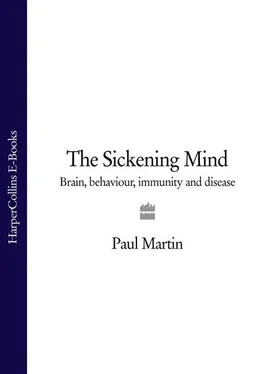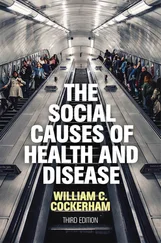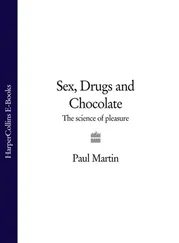When people react to illness by denying the reality of their symptoms they may save themselves the unpleasantness of confronting an unpalatable reality. But their denial can be positively dangerous if it prevents them from seeking timely medical attention. A woman who fails to notice a lump in her breast, for example, or chooses to disregard it until her breast cancer is at an advanced stage, may pay for her insouciance with her life.
It is an unfortunate fact that people are less likely to seek medical help if it is difficult, inconvenient or embarrassing for them to do so – perhaps because they are too busy, or cannot afford the fees, or because they are simply afraid of calling a doctor out on a false alarm. Heart attacks are notoriously more likely to prove fatal at weekends, when it is inconvenient or potentially embarrassing to seek expert medical help. The lives of countless heart attack victims might have been saved had they not incorrectly attributed their chest pains to indigestion.
The disastrous consequences of denial are sombrely portrayed in Arnold Bennett’s Riceyman Steps . The tightfisted Clerkenwell bookseller Henry Earlforward has cancer of the stomach but steadfastly denies that he is ill. Earlforward insists that it is merely a temporary indisposition and that he has a constitution of iron.
For a long time Earlforward’s wife interprets his lack of interest in food as a symptom of his miserliness rather than any medical problem. Even when it becomes obvious that the emaciated bookseller is gravely ill he obstinately refuses to be examined by a doctor, let alone admitted into hospital. His wife rails at him for concealing from her the seriousness of his illness until it is too late to do anything about it. She tries hard to persuade Henry to accept medical help, but is forced to concede for ‘nobody can keep on fighting a cushion for ever’. Faced with Henry’s bland obstinacy, his wife and doctor eventually abandon their attempts to help him and he dies from his cancer – a victim of his own misplaced psychological defences.
Whether or not an illness has psychological origins it will certainly have psychological consequences. Feeling ill for any length of time is a psychologically debilitating experience. One of the simple but important ideas I hope to convey in this book is that the relationships between mind, body and disease work both ways. The mind affects the body and hence physical health. Conversely, physical health affects the mind and hence our thoughts, emotions and behaviour.
All but the most trivial of illnesses produce some sort of emotional reaction, whether it be mild irritation, anxiety, anger, denial or depression. Other things being equal, a serious illness should provoke a more intense emotional reaction than a minor illness. But other things seldom are equal. Illness means different things to different people, and just because an illness is not life-threatening this does not mean the sufferer will be emotionally untouched by it. An individual who has never before experienced any significant illness, pain or discomfort may be upset by relatively minor symptoms which would seem insignificant to someone who has suffered a string of serious diseases.
Our emotional responses to illness can have a crucial bearing on our recovery and future health. If being ill makes us depressed we may become careless about adhering to our doctor’s advice or taking our medicine. This may, in turn, impede recovery. Whether or not a cancer patient adheres strictly to a programme of radiotherapy or chemotherapy can have a major impact on their chances of survival. There are patients who simply give up and sink into decline.
In extreme cases the emotional reaction to an illness can prove a bigger problem than the illness itself. Severe depression is far more debilitating and intrusive than many physical ailments. As we shall see in the next chapter, severe depression can also have detrimental effects on immune function and subsequent health, creating a spiral of decline. Doctors and patients ignore the psychological and emotional consequences of illness at their peril.
Finally, please do not go away with the impression that an individual’s perception of their own health is an entirely meaningless or deceptive index, indicating only their degree of hypochondria. On the contrary. Research has shown that in certain respects perception is a good guide to reality. Although our subjective judgement is not always an accurate index of our current state of health, it does provide a reasonably good predictor of our long-term risk of dying prematurely. Depressing though it may be if you are an arch hypochondriac, the research indicates that people who believe they are unhealthy do die younger on average. Moreover, perceptions are clearly important for practical and economic reasons: people’s perceptions of their health, rather than objective measures of health, are what largely determine their initial usage of medical facilities.
Sex and drugs and rock and roll
Is all my brain and body need
Ian Dury, ‘Sex and Drugs and Rock and Roll’ (1977)
A cousin of mine who was a casualty surgeon in Manhattan tells me that he and his colleagues had a one-word nickname for bikers: Donors. Rather chilling.
Stephen Fry, Paperweight (1992)
Our minds can have a profound impact on the physical health of our bodies by altering the way we behave. Psychological and emotional factors can dispose us to do all manner of unhealthy and self-destructive things. The self-destruction may be absolute and abrupt, as in suicide or fatal accidents, or gradual and cumulative, as in smoking.
Stress and anxiety, for example, can prevent us from sleeping properly and make us more inclined to smoke, drink excessive amounts of alcohol, eat too much of the wrong sorts of food, omit to take our medicine, neglect physical exercise, consume harmful recreational drugs, indulge in risky sexual behaviour, drive too fast without wearing a seat belt, have a violent accident, or even commit suicide (though not usually all at once).
Anna Karenin offers an impressive catalogue of self-destructive behaviour engendered by psychological and emotional trauma. Anna abandons her husband, the colourless bureaucrat Karenin, for the dynamic Count Vronsky. But their love is doomed and the emotional pressures on Anna build up to a fatal climax.
As a preamble to her eventual self-destruction, Anna nearly dies giving birth to Vronsky’s illegitimate daughter. In what she thinks are her final hours Anna appears to reconcile herself with her husband. Mad with emotional torment at this turn of events, Vronsky goes off and shoots himself – but not fatally. Although Vronsky is an army officer, and therefore presumably capable of hitting his own heart at point blank range, the bullet misses. He is seriously wounded – enough to make it a meaningful parasuicidal gesture – but does not die. Anna and the baby go to live with Vronsky, but her husband refuses to divorce her and she becomes a social outcast. The strain of her position renders Anna increasingly unstable and she develops paranoid delusions about Vronsky’s supposed unfaithfulness. Consumed by the madness of her passion, Anna suddenly decides that she must end her torment and punish Vronsky for his imagined misdeeds by killing herself. Anna famously ends her own life under the wheels of a train:
‘There,’ she said to herself, looking in the shadow of the trucks at the mixture of sand and coal dust which covered the sleepers. ‘There, in the very middle, and I shall punish him and escape from them all and from myself.’
And she does. And there is more. Almost insane with grief at Anna’s death, the bereaved Vronsky volunteers to fight, and very probably die, in a war between the Serbians and the Turks. Vronsky no longer places any value on his life and relishes the prospect of death: ‘I am glad there is something for which I can lay down the life which is not simply useless but loathsome to me. Anyone’s welcome to it …’
Читать дальше












